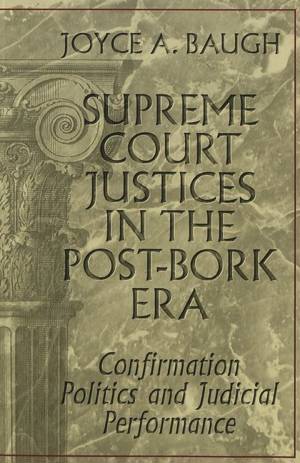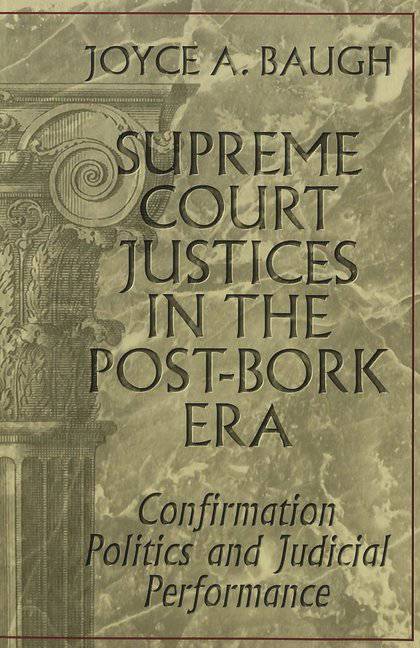
- Afhalen na 1 uur in een winkel met voorraad
- Gratis thuislevering in België vanaf € 30
- Ruim aanbod met 7 miljoen producten
- Afhalen na 1 uur in een winkel met voorraad
- Gratis thuislevering in België vanaf € 30
- Ruim aanbod met 7 miljoen producten
Zoeken
Supreme Court Justices in the Post-Bork Era
Confirmation Politics and Judicial Performance
Joyce A Baugh
€ 32,45
+ 64 punten
Omschrijving
The failed nomination of federal appeals court judge Robert Bork to the U.S. Supreme Court led to conclusions that the confirmation process for Supreme Court nominees had been forever changed. Commentators speculated that future nominations would be characterized by intense media coverage, heavy interest group involvement, and the selection of either «stealth» nominees or non-controversial judicial moderates. This book examines the four subsequent nominations - David Souter, Clarence Thomas, Ruth Bader Ginsburg, and Stephen Breyer - to assess whether the Bork episode has had this long-term impact. Supreme Court Justices in the Post-Bork Era also focuses on the justices' actual performance on the Court in light of the confirmation process, and the author speculates about the future of Supreme Court confirmation politics.
Specificaties
Betrokkenen
- Auteur(s):
- Uitgeverij:
Inhoud
- Aantal bladzijden:
- 128
- Taal:
- Engels
- Reeks:
- Reeksnummer:
- nr. 21
Eigenschappen
- Productcode (EAN):
- 9780820456836
- Verschijningsdatum:
- 4/09/2002
- Uitvoering:
- Paperback
- Formaat:
- Trade paperback (VS)
- Afmetingen:
- 160 mm x 230 mm
- Gewicht:
- 199 g

Alleen bij Standaard Boekhandel
+ 64 punten op je klantenkaart van Standaard Boekhandel
Beoordelingen
We publiceren alleen reviews die voldoen aan de voorwaarden voor reviews. Bekijk onze voorwaarden voor reviews.











